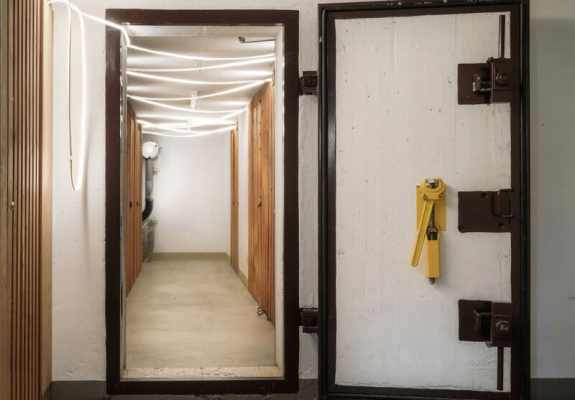In 1962, Switzerland introduced a law that required underground bomb shelter space be constructed for all residents. Since then shelters have been built into houses and communal spaces have been built by municipalities for those living in a building without one. This week, the federal government announced plans to increase spending to renew and maintain the nation’s stock of bomb shelters, reported SRF. Bomb Shelter © Petrarichli | Dreamstime.comThe 1962 law, which was born from the threat of nuclear warfare during the cold war, requires one square metre of shelter space per person. Those who build a new house without a bomb shelter must contribute to the cost of spaces in a communal facility. The bomb shelter rules, which exist only in Switzerland, have made the nation an
Topics:
Investec considers the following as important: Editor's Choice, Human interest, Property
This could be interesting, too:
Investec writes Children most affected by poverty in Switzerland and need more assistance, says report
Investec writes Cutting Swiss tax free allowance sparks mixed reactions
Investec writes Swiss farmers protest at subsidy cuts
Investec writes Swiss inflation dips below 1 percent for first time in three years
In 1962, Switzerland introduced a law that required underground bomb shelter space be constructed for all residents. Since then shelters have been built into houses and communal spaces have been built by municipalities for those living in a building without one. This week, the federal government announced plans to increase spending to renew and maintain the nation’s stock of bomb shelters, reported SRF.

The 1962 law, which was born from the threat of nuclear warfare during the cold war, requires one square metre of shelter space per person. Those who build a new house without a bomb shelter must contribute to the cost of spaces in a communal facility.
The bomb shelter rules, which exist only in Switzerland, have made the nation an international leader in bunker design and technology, exporting to much of the world. Over the years, many dictators, such as Saddam Hussein and Muammar Gaddafi have called on Swiss companies to design and install bomb shelters.
Since 1962, billions of francs have been spent on these shelters. Many are privately-owned structures in the basements single-family homes or apartments. They are often used as wine cellars or food pantries – thick concrete walls moderate the temperature. In theory they are supposed to be maintained and equipped with beds and chemical toilets. However, construction, maintenance requirements, and their enforcement are overseen by cantonal governments, which operate differently. For example, in some cantons nearly every home has a bunker, while others have mainly public spaces – Fribourg for example has only public spaces.
In 2022, nationwide spaces comfortably exceeded the population. However, space is not well matched with the population geographically. Five cantons had a space deficit.
Due to changes in the global security situation, such as the the ongoing war in Ukraine, existing structures and their maintenance are of great importance, wrote the Federal Council this week. The plans involve increasing the annual maintenance budget from CHF 9 million to CHF 15 million from 2027. Ageing components such as ventilation units and filters need periodic replacement and will be a focus of the increased maintenance.
Part of the increased cost may fall on home owners depending on the shape of any final plan. The Federal Council said it plans to increase contributions for the construction of communal spaces to rise by between CHF 800 and CHF 1,400.
More on this:
SRF article (in German)
For more stories like this on Switzerland follow us on Facebook and Twitter.
